Politics
U.S. Government Shutdown Ends After House Vote
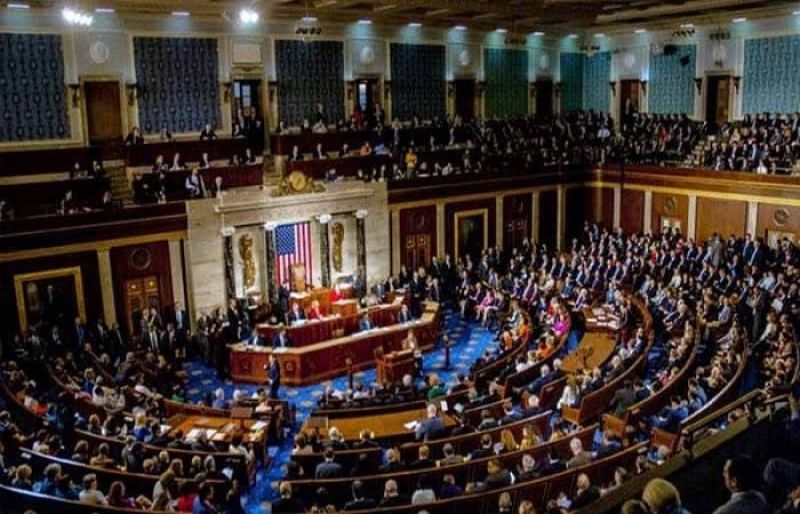
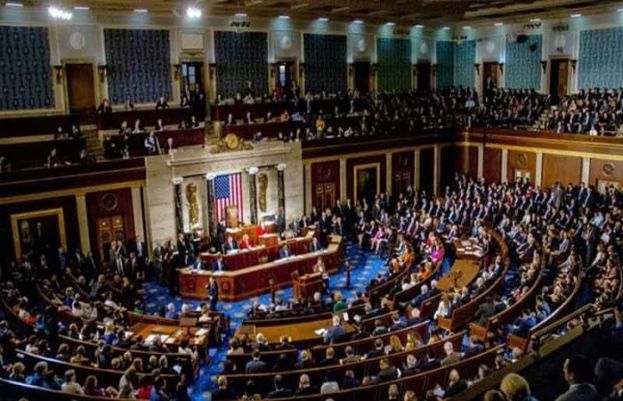
Congress on Wednesday ended the longest government shutdown in US history — 43 days that paralysed Washington and left hundreds of thousands of workers unpaid while Donald Trump’s Republicans and Democrats played a high-stakes blame game. The Republican-led House of Representatives voted largely along party lines to approve a Senate-passed package that will reopen federal departments and agencies, as many Democrats fume over what they see as a capitulation by party leaders.
They knew that it would cause pain, and they did it anyway,” House Speaker Mike Johnson said in a withering floor speech before the vote, pointing the finger for the standoff at the minority party.
“The whole exercise was pointless. It was wrong and it was cruel. The package — which Trump is scheduled to sign later Wednesday evening — funds military construction, veterans’ affairs, the Department of Agriculture and Congress itself through next fall, and the rest of government through the end of January.
Around 670,000 furloughed civil servants will report back to work, and a similar number who were kept at their posts with no compensation — including more than 60,000 air traffic controllers and airport security staff — will get back pay.
The deal also restores federal workers fired by Trump during the shutdown, while air travel that has been disrupted across the country will gradually return to normal.
Trump himself had little to say on the vote, although he took to social media to falsely accuse Democrats of having “cost our Country $1.5 Trillion… with their recent antics of viciously closing our Country.”
The full financial toll of the shutdown has yet to be determined, although the Congressional Budget Office estimates that it has caused $14 billion in lost growth.
– ‘Not backing away’ –
Johnson and his Republicans had almost no room for error as their majority is down to two votes.
Democratic leadership — furious over what they see as their Senate colleagues folding — had urged members to vote no and all but a handful held the line.
Although polling showed the public mostly on Democrats’ side throughout the standoff, Republicans are widely seen as having done better from its conclusion.
For more than five weeks, Democrats held firm on refusing to reopen the government unless Trump agreed to extend pandemic-era tax credits that made health insurance affordable for millions of Americans.
Election victories in multiple states last week gave Democrats further encouragement and a reinvigorated sense of purpose.
But a group of eight Senate moderates broke ranks to cut a deal with Republicans that offers a vote in the upper chamber on health care subsidies — but no floor time in the House and no guarantee of action. Democrats are now deep in a painful reckoning over how their tough stance crumbled without any notable win.
Democratic leadership is arguing that — while their health care demands went largely unheard — they were able to shine the spotlight on an issue they hope will power them to victory in the 2026 midterm elections. Over the last several weeks, we have elevated successfully the issue of the Republican health care crisis, and we’re not backing away from it,” House Minority Leader Hakeem Jeffries told MSNBC.
But his Senate counterpart Chuck Schumer is facing a backlash from the fractious progressive base for failing to keep his members unified, with a handful of House Democrats calling for his head. Outside Washington, some of the party’s hottest prospects for the 2028 presidential nomination added their own voices to the chorus of opprobrium.
California Governor Gavin Newsom called the agreement “pathetic,” while his Illinois counterpart JB Pritzker said it amounted to an “empty promise.” Former transportation secretary Pete Buttigieg called it a “bad deal.”
Politics
New Epstein emails claim Trump ‘knew about the girls’


- Democrats say messages raise serious questions for Trump.
- Speaker Johnson sets House vote on releasing Epstein files.
- Epstein to Maxwell, Trump spent hours with a victim.
WASHINGTON: Jeffrey Epstein suggested Donald Trump knew about the disgraced financier’s abuse and “spent hours” with one of the victims at his house, according to emails released by Democrats Wednesday that raised awkward new questions for the US president.
Trump has repeatedly denied any knowledge of the sex-trafficking activities of his former friend — who died by suicide in 2019 while in prison awaiting trial — and accused Democrats of trying to “deflect” from their own failings.
But the scandal has proved tough for Trump to shake, and Democrats on the House Oversight Committee said the three new emails “raise serious questions about Donald Trump and his knowledge of Epstein’s horrific crimes.”
The pressure on Trump grew later Wednesday, when Republican House Speaker Mike Johnson said he would hold a vote next week on a bid to force the Justice Department to release the remaining Epstein files.
In an April 2011 message to longtime associate Ghislaine Maxwell, Epstein asserts Trump spent significant time with a woman whom the White House later identified as Epstein’s main accuser, Virgina Giuffre.
“I want you to realise that that dog that hasn’t barked is Trump,” wrote Epstein. He added that the victim “spent hours at my house with him, he has never once been mentioned.”
Maxwell, who was convicted of sex trafficking after Epstein’s death, replied: “I have been thinking about that…”
‘Of course he knew’
In another email to the author Michael Wolff, dated January 31, 2019, Epstein allegedly wrote: “of course he knew about the girls as he asked Ghislaine to stop.”
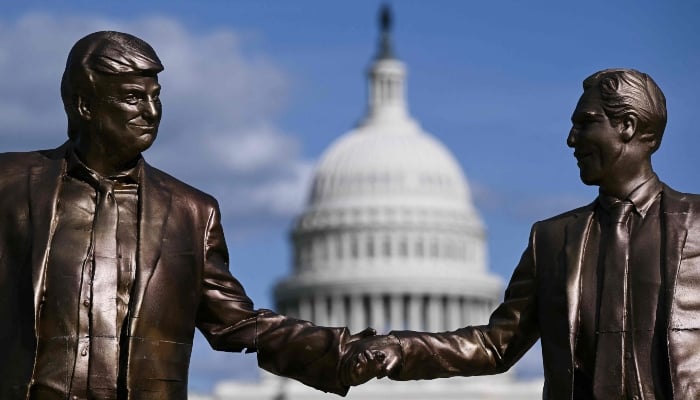
Republicans later released a trove of thousands of emails, obtained after Democrats subpoenaed Epstein’s estate earlier this year, including one in which Epstein called Trump “dirty.”
The Epstein furore is still roiling Trump’s administration more than four months after his Justice Department sought to close the case.
Keen to capitalise on the simmering controversy, Democrats in the House have been trying to force a vote that would compel publication of the full Epstein case files.
Trump urged Republicans not to fall into a “trap,” and top officials hosted hard-right Republican Lauren Boebert in the White House Situation Room to push her to keep her name off the petition.
“The Democrats are trying to bring up the Jeffrey Epstein Hoax again because they’ll do anything at all to deflect on how badly they’ve done,” Trump said on Truth Social.
But Boebert refused to back down, and the petition passed when Democratic congresswoman Adelita Grijalva was sworn in after weeks of delay and immediately signed the petition.
Johnson said the House vote on the files would take place next week, earlier than expected, as Republicans try to put the issue behind them.
MAGA base furious
The White House went into fightback mode, accusing Democrats of selectively leaking the messages to “create a fake narrative to smear President Trump.”
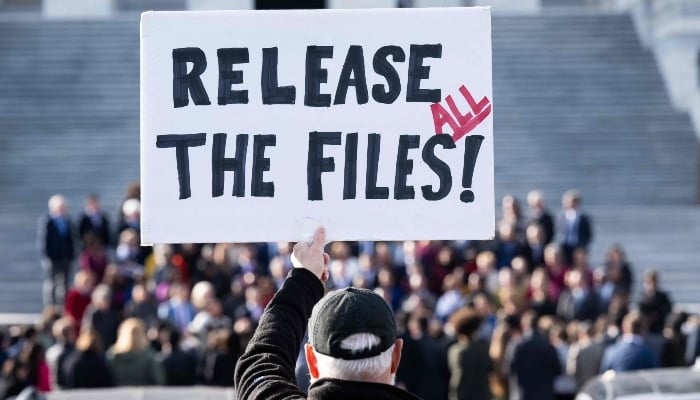
Press Secretary Karoline Leavitt said that Virginia Giuffre, who herself died by suicide in April, had declared that Trump “‘couldn’t have been friendlier’ to her in their limited interactions.”
The Epstein scandal has dogged Trump for months, after his Justice Department, in a July memo, reaffirmed he died by suicide, and that a “client list” Attorney General Pam Bondi claimed to have been reviewing did not in fact exist.
It sparked a furious backlash from Trump’s “MAGA” support base, who felt betrayed after being told for years that a “deep state” cover-up was protecting figures in the Democratic Party whom they accused of being Epstein’s clients.
Trump’s MAGA lieutenants — including two allies who now run the FBI — made careers of fanning the conspiracy theories, including that Epstein’s suicide was actually a murder ordered by his powerful clients.
Trump’s ties to Epstein are extensive. The pair were pictured partying together during a 15-year friendship before they reportedly fell out in 2004 over a property deal, and when Trump subsequently denounced his former ally.
Politics
Internet freedom declines in US, Germany amid growing online restrictions
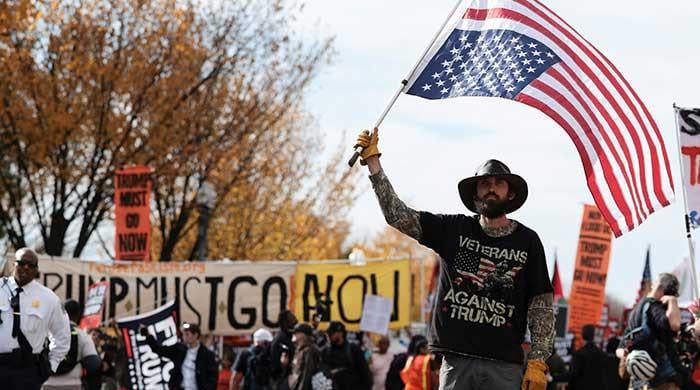

WASHINGTON: Internet freedom declined in both the United States and Germany as Western democracies joined authoritarian states in imposing growing restrictions online, an annual survey by Freedom House said Thursday.
The Washington-based democracy promotion research group said global internet freedom fell for the 15th straight year, with declines in a number of countries that remain classified as “free”.
“We find worsening repression in authoritarian and authoritarian-leaning states, largely because governments in those countries see restrictions on the internet and online expression as a means of maintaining power,” said Kian Vesteinsson, the report’s co-author.
“Much more specific to 2025, we’ve seen conditions in democracies declining,” he told AFP.
“Unfortunately we see across North America and Western Europe generally a trend towards closing civic space in some countries, and in others deepening restrictions on people posting hateful or problematic content,” he said.
The US scored 73 on a scale of 100 on internet freedom in the year through May 2025 covered by the report, its lowest-ever figure and down three points from the previous year.
The report pointed in part to the detention by President Donald Trump’s administration of a number of non-US citizens over their online expression.
Secretary of State Marco Rubio has vowed to deport people over statements on Israel, decisions challenged in courts.
Germany also saw a decline of three points to 74. Freedom House said that Germany was seeing growing self-censorship and also the zealous enforcement of laws that prohibit hate speech and defamation.
It pointed to a suspended jail sentence and fine imposed on the editor of a far-right website over a social media post that included a manipulated image to criticise a politician.
The Trump administration has repeatedly criticised the free speech record of Germany, which says its Nazi past makes it critical to impose safeguards.
The most severe declines in the report were registered by Kenya, which briefly shut down the internet in response to nationwide protests, as well as Venezuela and Georgia.
Two countries were downgraded — Serbia was classified as “partly free” instead of “free” and Nicaragua was marked as “not free” instead of “partially free”.
Bangladesh saw the biggest gain, as a new government formed after a student revolt loosened restrictions in the country.
Freedom House, founded during World War II to promote democracy, was historically funded largely by the US government but operated independently.
Trump on returning to office slashed funding to rights groups including Freedom House, which has laid off staff.
Politics
World’s fossil fuel emissions to hit new record in 2025: study
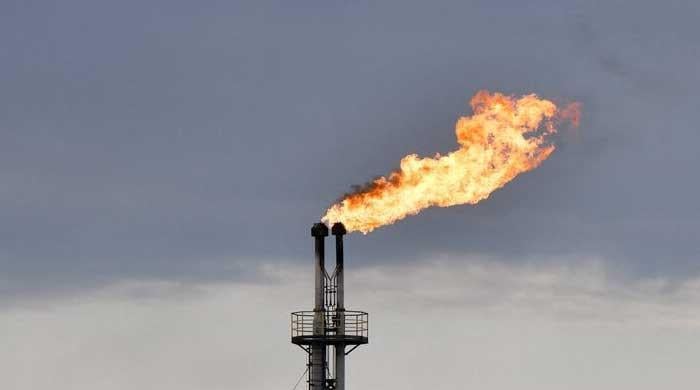

PARIS: Global fossil fuel emissions are set to hit a new high in 2025, according to research published Thursday that also warns curbing warming under 1.5°C would now be essentially “impossible”.
The annual Global Carbon Budget report looks at humanity’s emissions of planet-heating CO2 from burning hydrocarbons, cement production and land use — like deforestation —and relates the figures to the warming thresholds outlined in the 2015 Paris Agreement.
An international team of scientists found that CO2 emissions from fossil fuels will be 1.1% higher in 2025 than a year ago, with the huge rollout of renewable technologies across the world not yet enough to compensate for growing energy demand.
With emissions from oil, gas and coal all set to rise, the overall figure is due to reach a record of 38.1 billion tonnes of CO2.
Released as nations meet for COP30 climate talks in the Brazilian Amazon, the new study calculated a remaining allowance of 170 billion tonnes of CO2 to limit warming to 1.5°C from pre-industrial levels — the goal outlined in the Paris Agreement.
“This equates to four years of emissions at the current rate before the budget for 1.5°C is exhausted, so that is impossible, essentially,” said Pierre Friedlingstein of Britain’s Exeter University, who led the research.

The failure to cut planet-heating emissions is overshadowing the COP30 in the rainforest city of Belem — the conference taking place this week without the presence of the United States, the world’s second-largest polluter.
Despite indications that 2025 will be one of the hottest years ever recorded, nations’ future climate plans have also fallen far short.
“Collectively, the world is not delivering,” Glen Peters, at the CICERO Centre for International Climate Research, told AFP.
“Everyone needs to do their bit, and all of them need to do more.”
Not yet peaked
Peters said fossil emissions in China were largely “flat” this year, particularly from highly polluting coal, which could indicate that renewables will start to take a greater share of energy demand.
But he said policy uncertainty in the world’s biggest carbon polluter meant it was too early to declare it had reached a peak.
“The balance is shifting towards where you would start to expect emissions to go down, but it will take some time,” he said.
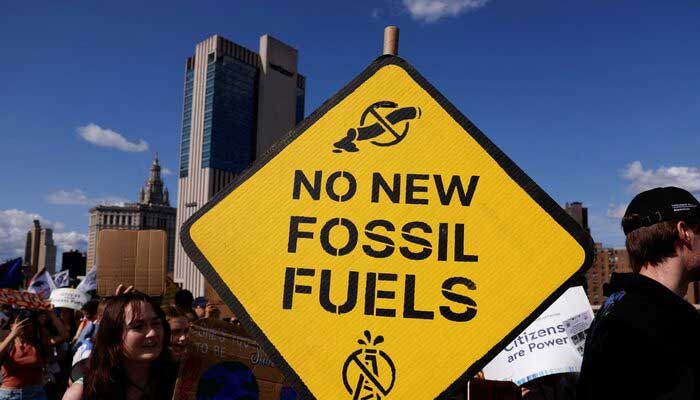
In the US, coal emissions rose 7.5%, as higher gas prices saw power generation switched to the more polluting fuel.
Overall, both the US and EU bucked recent downward trends with increased emissions, partly linked to cooler winter months spurring demand for heating.
In India, an early monsoon and strong renewables growth helped drive a smaller CO2 rise than in recent years.
The study, published in the journal Earth System Science Data, found that 35 countries had now managed to reduce their emissions while also growing their economies — twice as many as a decade ago.
Humanity’s total emissions including from land were projected to reach 42.2 billion tonnes this year — slightly lower than last year, although this was subject to wide uncertainty.
Researchers said a reduction in deforestation and damaging fires in South America — partly linked to the end of very dry 2023-2024 El Nino conditions — had played a role in reducing net land use emissions.
-

 Business1 week ago
Business1 week agoGST rationalisation impact: Higher RBI dividend expected to offset revenue shortfall; CareEdge flags tax pressure – The Times of India
-

 Tech1 week ago
Tech1 week agoBlood Tests for Alzheimer’s Are Here
-

 Business1 week ago
Business1 week agoSetback for expatriates? Delhi HC upholds mandatory EPFO membership; what this means for foreign staff – The Times of India
-

 Fashion1 week ago
Fashion1 week agoBangladesh Bank allows foreign currency-taka swap facility for dealers
-
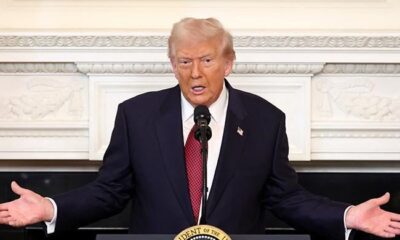
 Politics1 week ago
Politics1 week agoTrump links Republicans’ election setbacks to record US govt shutdown
-

 Tech1 week ago
Tech1 week agoZohran Mamdani Just Inherited the NYPD Surveillance State
-

 Tech1 week ago
Tech1 week agoThe AI Data Center Boom Is Warping the US Economy
-

 Sports1 week ago
Sports1 week agoPeat wows in debut as Arizona beats No. 3 Florida






